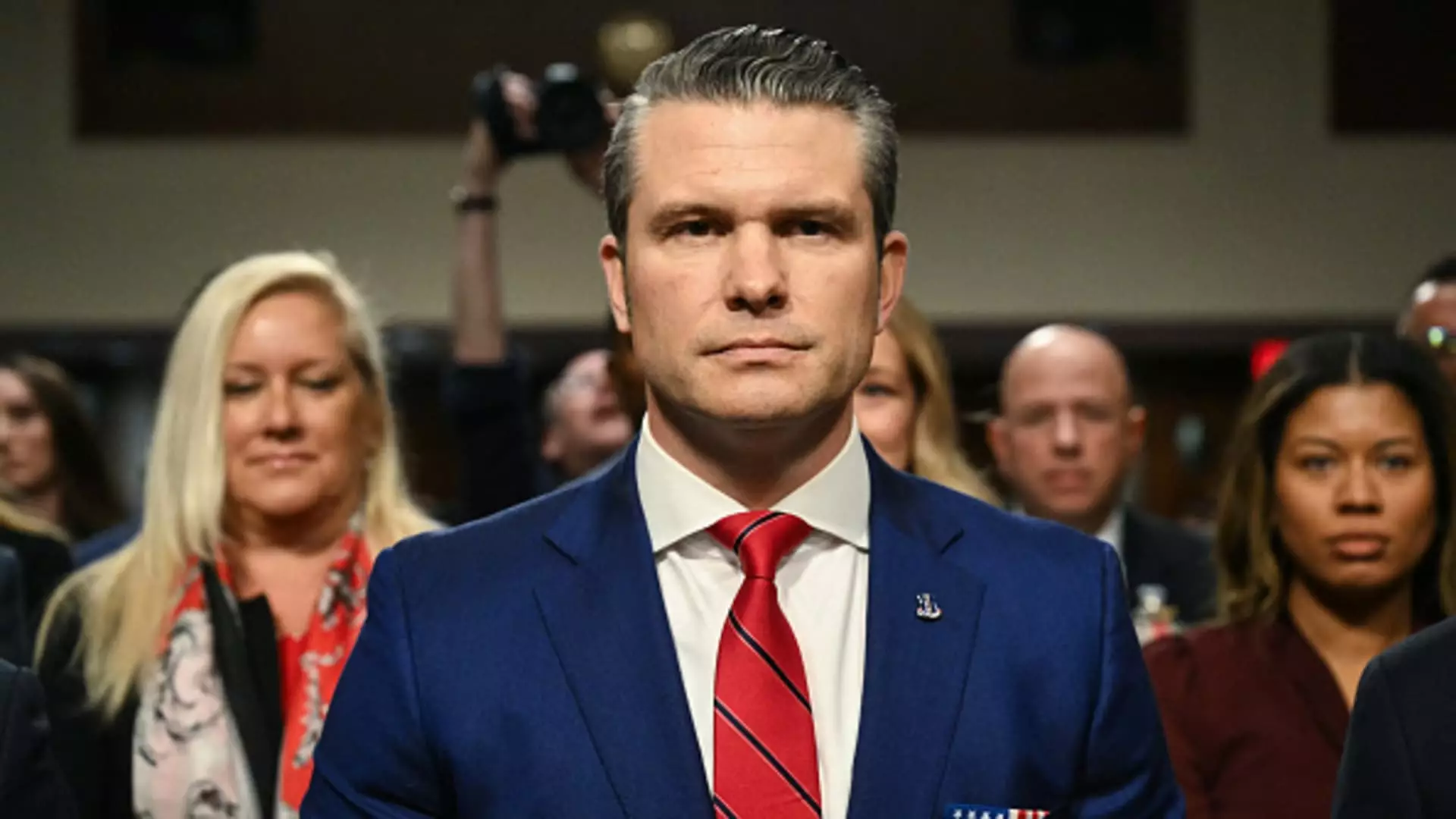The nomination of Pete Hegseth as Defense Secretary is emblematic of the current political climate in the United States, characterized by intense partisanship and a labyrinth of personal controversies. As the Senate prepared to conduct a vote on Hegseth’s confirmation, the dance between political ambition, public scrutiny, and cultural debates reached a fever pitch. The Republican majority seemed resolved to push Hegseth’s ascendance, even amidst serious allegations that would typically derail such an appointment.
A critical aspect of Hegseth’s nomination lies in the serious allegations made against him. Reports surfaced of an alleged sexual assault at a Republican conference, which Hegseth categorically denied, asserting that the encounter in question was consensual. Additionally, allegations of abusive behavior toward his former spouses raised eyebrows among senators and the public alike. Credibility issues in such an environment could compromise the integrity of the Defense Department; however, Hegseth’s supporters have labeled these accusations as part of a “smear campaign,” a phrase that has echoed throughout his confirmation process.
This framing of Hegseth’s controversies showcases the broader trend of politicizing personal allegations. In an era where accusations can lead to swift political ramifications, the distinctions between genuine concern and political maneuvering become increasingly blurred. Hegseth’s decision to pay off an alleged victim with $50,000 adds complexity to his narrative. It raises questions about how candidates for high office manage their pasts and what repercussions they might face for actions that surface long after their conduct.
Another facet of Hegseth’s nomination revolves around his commitment to fostering a “warrior culture” at the Pentagon. Senate Majority Leader John Thune championed this idea, suggesting that it would steer the military away from what he termed “woke distractions,” including diversity, equity, and inclusion initiatives perceived to detract from traditional military objectives. This focus aligns with a segment of the Republican Party eager to assert a more combative stance on cultural issues, claiming a return to robust military readiness is paramount.
The implications of this ideological pivot carry weighty consequences for the culture within the military. Many female senators, including Lisa Murkowski and Susan Collins, expressed concerns that Hegseth’s confirmed position could send adverse signals to women serving in the armed forces. Historically marginalized communities worry that the emphasis on a “warrior culture” may neglect the importance of representation and inclusivity essential for a modern military force. This debate highlights a rift not only within the Senate but also across the nation as cultural identities clash over the direction of defense policy.
The onus was on the Republican Party to affirm its cohesion as they navigated this contentious nomination. Trump’s vocal support of Hegseth served as a barometer for GOP loyalty. The quick dissent from senators like Murkowski and Collins created immediate tension, illustrating the fracturing within party lines when confronting contentious nominees. Trump’s criticism of fellow Republicans who opposed Hegseth signals a shift towards a more authoritarian style of leadership, where dissent is met with public rebuke rather than healthy debate.
The looming uncertainty of the vote exemplifies the precarious nature of Trump’s relationship with Senate leadership. While Senate Minority Leader Mitch McConnell had previously indicated support for national security nominees with credible backgrounds, he harbored reservations about Hegseth. Behind closed doors, conversations on whether Hegseth’s nomination reflects poorly on the GOP’s standards may be rife with anxiety about the long-term implications of supporting an accused nominee.
As the Senate prepared for a crucial vote, the role of minority voices was glaringly evident. Democratic senators sought to prolong the confirmation process, arguing Hegseth exemplified a troubling trend of prioritizing loyalty over qualification. They emphasized that substantive qualifications in defense leadership are non-negotiable, particularly given the security challenges facing the United States.
The closing argument against Hegseth’s confirmation indicates a deeper discontent with the current trajectory of government appointments under Trump. With fewer checks on controversial figures, the executive branch may increasingly resemble a tumultuous political landscape rather than a structured governing body. Senators must grapple not only with Hegseth’s candidacy but with the kind of message their decision sends about the qualifications — and reputations — needed for high office, reinforcing a narrative about accountability and integrity that resonates far beyond the halls of Congress.
Hegseth’s fight for confirmation as Defense Secretary reveals an urgent crossroads for the Republican Party as they engage with cultural, ethical, and political questions of accountability amidst a chaotic landscape. As he stands on the precipice of leadership, the implications of his confirmation could ripple far beyond his tenure in office.

Leave a Reply